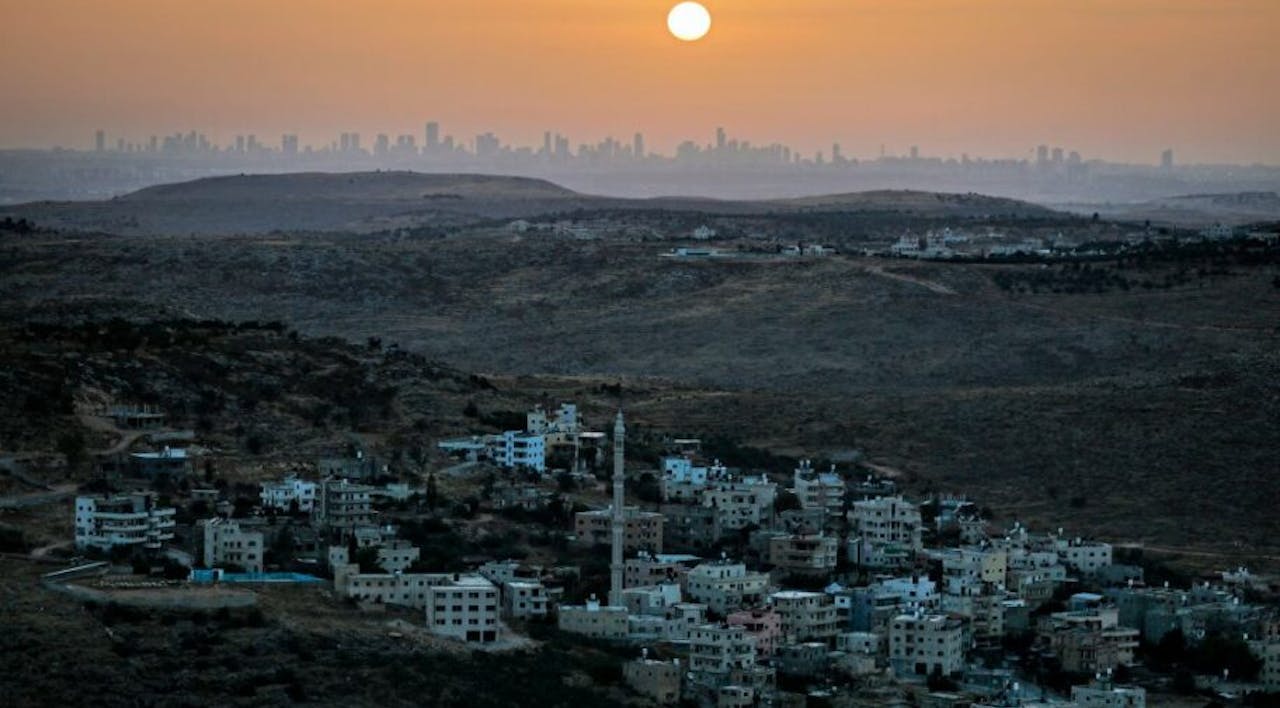
February 2025
To Save Itself from International Isolation, Israel Must Hold On to the West Bank
The diplomatic case against territorial concessions.
In May of 2024, Ireland, Spain, and Norway, in coordination, recognized Palestinian statehood. Doing so did not end the war between Israel and Hamas, improve the humanitarian situation in the Gaza Strip, or have any noticeable effect on Palestinian political arrangements. But recognition, according to Ireland’s then-Prime Minister Simons Harris, “gives hope” that a two-state solution will one day be implemented. The idea seems to be that the creation of an independent Palestinian state is the only acceptable (and even inevitable) outcome of the conflict, and will somehow fix the underlying causes of the current war.
Ireland may be an outlier, even among European nations, in the extent of its hostility toward Israel, but the underlying sentiment is widely shared. On October 16, 2023—less than a week after a Hamas-run statelet in Gaza had massacred 1,200 Israelis—then-Secretary of State Antony Blinken told the Saudi news outlet Al Arabiya that the two-state solution is necessary for the Middle East. He repeated the sentiment in November 2023, March, May, and July 2024, and again in his final interview with the New York Times last month. Likewise, the late Martin Indyk, a former American diplomat who might be taken as representative of American pro-Israel Jewish liberals, wrote an essay in Foreign Affairs a year ago arguing that the Gaza war proves precisely how necessary a two-state solution is. If the present cease-fire holds, discussions of “the day after” in the Gaza Strip will become more urgent, and Palestinian statehood will no doubt take center stage.
To most Israelis, including many who support the two-state solution in principle, such calls appear bizarre and even in poor taste—a “reward for terror,” as Prime Minister Netanyahu put it last May in response to the Irish-Spanish-Norwegian initiative. But whether we like it or not, despite the two-state solution’s tanking popularity in Israel itself, in the international arena it remains the consensus solution to the Israel-Palestinian conflict, supported by virtually all of Israel’s Western allies, perhaps with the exception of parts of the Republican party. Others believe that while the Israel-Palestinian conflict is too hard a nut to crack in the foreseeable future, territorial concessions—whether unilateral or in the context of a partial agreement with the Palestinians—could at least mitigate the conflict. (For the rest of this essay, I will use “territorial concessions” to refer to all these approaches: the creation of a Palestinian state that fully ends the conflict, a partial deal that creates the political framework for such a state even without final status agreements, and also unilateral withdrawals in the mold of Ariel Sharon’s 2005 disengagement from Gaza.)
Responses to February ’s Essay

February 2025
Israeli Territorial Concessions Worsen Anti-Semitism in the West
By Evelyn Gordon
February 2025
Why Israel Should Keep Open the Possibility of Palestinian Statehood
By Robert Satloff
February 2025
Why Some Western Liberals Love Palestinian Terror
By Calev Ben-Dor
February 2025
Status Quoism Is a Temperament, Not an Ideology
By Rafi DeMogge
February 2025
E-Book: To Save Itself from International Isolation, Israel Must Hold On to the West Bank
By Rafi DeMogge, Robert Satloff, Evelyn Gordon, Calev Ben-Dor